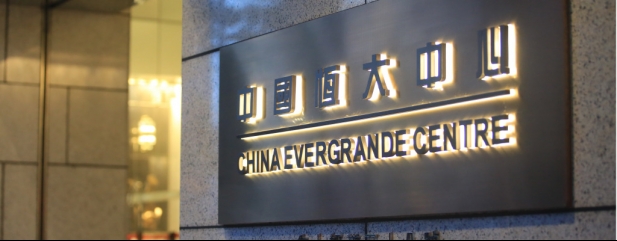Archived article
Please note that tax, investment, pension and ISA rules can change and the information and any views contained in this article may now be inaccurate.
Three reasons the Chinese sell-off could be reversed

The sell-off in China looks to have gone too far. The MSCI China index has declined by 20% over the last three months. Investor sentiment in the region has been undermined by a wave of policy tightening and stringent regulation targeting sectors from property to technology.
These fears have been compounded by concerns that Evergrande, the world’s most indebted property firm will default, causing contagion in the Chinese bank sector. A series of recent downgrades to Chinese growth forecasts has provided further ammunition to sceptics of the Chinese economic miracle, who argue that investing in the region is an increasingly risky proposition.
Nonetheless, there is a compelling argument that we have reached a turning point for Chinese stocks, where valuations for the internet sector in particular are attractive. Regulatory intervention in China is not new, and the experience of 2018 would indicate that current fears have been overblown.
The property sector accounts for 25% of the Chinese economy, and is inextricably linked to both social stability and the financial system. This means the Chinese authorities are likely to contain the Evergrande situation, making contagion highly unlikely.
Fears of a sharp slowing of China’s growth rate are also at odds with the continued expansion of the Chinese middle class, and the associated increase in disposable income.
A PERIOD OF INCREASING REGULATORY OVERSIGHT
The unexpected IPO cancellation in November last year of Ant Financial, a division of Alibaba, signalled the inception of a government campaign to increase its control over the private sector. This increasingly draconian regulatory environment has encompassed private tutoring, e-commerce, social media, fintech, ride-sharing and video-streaming platforms.
Shares in Chinese Uber rival Didi fell 30% after the Chinese government announced a cyber-security review and insisted that the company remove a multitude of apps from its platform. The review came just after the company had listed on the US stock market.
Shares in both New Oriental Education and Technology and TAL Education lost over half their value following an unexpected crackdown by the Chinese authorities on public tutoring. The fundamental economics of after school tutoring have been undermined by the new policy measures. Not only will class sizes be significantly limited but they will also need to be non-profit. The overall aim of these reforms is to reduce the cost of education on children and families.
The Chinese internet sector was badly hit by new data protection legislation and new limits on the time children can spend online gaming. In response investors have aggressively sold shares in large cap companies including Baidu, Alibaba and Tencent.
CHINESE REGULATORY INTERVENTION IS NOT NEW
In a recent shareholder letter, Dale Nicholls, portfolio manager of Fidelity China Special Situations (FCSS), argues that from a timing and historical perspective, it is not the first time that we have witnessed heightened regulation in China.
‘We only need to cast our minds back to 2018 when the government felt the younger generation was spending too much of their time playing online games and as a result halted new gaming licenses. This was clearly a factor driving a near 50% correction in Tencent’s stock market price before rebounding.
‘Markets dislike uncertainty but we saw Tencent’s shares rally 200% since the low in October 2020 to their high in January this year.’
According to Dale the Chinese internet sector is strategically critical, accounting for 40% of the economy and acts as an important conduit for innovation. He believes that current sector valuations are attractive, adding:
‘Historically the sector has traded in a prospective price to earnings range of between 24 and 40. The sector is currently trading on a prospective PE multiple of 26 which is very close to the bottom of the range.’
On a stock level, Dale highlights Alibaba as an attractive investment. It has dominated recent headlines but if you ‘factor out the cash and investments and the core business, you are looking at a low teens earnings multiple.
‘This includes the cloud business which is loss-making but arguably still has long-term growth prospects. You can get to a single digit PE valuation for the core e-commerce business.
‘There has been some competitive pressure, but for the dominant e-commerce player in China to be trading on that multiple, I think there is clear value emerging. If you are comparing Alibaba to Amazon which in some ways has similar businesses you can get to over a 70% discount.’
FEARS OF EVERGRANDE CONTANGION
For years market commentators have been anticipating the demise of Chinese property developer Evergrande. This is understandable given that it is the world’s most indebted firm with $300 billion in liabilities. The company relies upon selling development properties years before completion to secure buyers’ deposits.
Evergrande has become increasingly reliant on high cost, short-term financing. In an attempt to reduce leverage in the sector, authorities have constrained the developer’s ability to sustain ever increasing levels of debt by limiting net debt to equity ratios to 100% and liability to asset ratios to less than 70%.
To generate cash Evergrande has been forced to significantly reduce the price at which it sells houses and to dispose of land at a marked discount. Last month it missed coupon payments on two dollar bond tranches and is scrambling to sell assets to pay creditors. An index of China yielding debt (MERACYC) which is predominantly composed of developer issuers has declined by 20% since May. This contrasts sharply with comparable American and European indices that have rallied.
An additional concern is that the deleveraging of the Chinese property sector may trigger contagion within the Chinese banking sector.
However recent research by Liberum’s Chinese affiliate CGS CIMB suggests that this fear is largely unwarranted. Under its stress test analysis of the Chinese bank sector, which assumes a 9% corporate non-performing loan ratio, only Minsheng Bank would need to raise capital.
The research also indicated that falling prices are unlikely to have a material impact on the Chinese banking sector, because the low loan to value ratios provide a considerable buffer of approximately 30%.
Unlike America and Australia, Chinese mortgage credit underwriting has been relatively disciplined.
According to Michael Chang, director of financials at CGS CIMB: ‘These factors as well as a lack of any material securitisation (where mortgages are packaged up in an instrument and sold to investors) market should help ensure that losses on mortgages are smaller than they otherwise would be.’

CHINESE GROWTH CONCERNS
The aforementioned difficulties at property giant Evergrande, coupled with the widespread regulatory squeeze prompted Bank of America to cut its China growth forecast. The economists lowered their 2021 and 2022 year on year growth forecasts to 8% and 5.3%, down from 8.3% and 6.2% respectively.
In a similar vein, investment bank Goldman Sachs expects 2021 Chinese GDP to grow by 7.8% compared with a previous forecast of 8.2%. Next year it expects GDP to grow by 5.5% compared with an earlier forecast of 5.6%.
‘Considerable uncertainty remains with respect to the fourth quarter, with big upside and downside risks relating to the government’s approach to managing the Evergrande stresses….and the degree of policy easing,’ Goldman noted.
Fidelity Asia Pacific chief investment officer Paras Anand believes the mid to long-term Chinese growth outlook is robust given the expansion of the middle class. This has been facilitated by the increase in the urbanisation rate. In the most recent five-year plan a target of 65% was established, up from the current level of 61%.
Within a global context this is relatively low and the scope to further raise this level is a potential driver of long-term growth. Moreover within the urban population a significant cohort lack the Hukou (household registration rights and documentation).
Government plans to expand the Hukou system will confer increasing rights upon a significant number of urban workers. This will act as another catalyst for consumption and economic growth.
IS THE CHINESE EQUITY MARKET ATTRACTIVE ON VALUATION GROUNDS?
We are entering a new phase in the Chinese economic growth story, where we can expect more modest economic growth over the coming years.
However, this is very much in line with new government policy initiatives to engender a more balanced economy which is less dependent on fixed asset spending, but rather high quality manufacturing and consumption.
Victoria Mio, director of Asian equities at Fidelity, has highlighted the appeal of Chinese equities on valuation grounds. The MSCI China and CSI 300 index are both currently trading on a forward PE of 12 times, with consensus earnings for next year at 13%. She says: ‘The market looks very cheap versus historical valuations.’
From a regulatory perspective Mio argues China has often instigated periods of regulatory change that ‘usually last from six months to one year and the correction period is similar’. The correction started in March and we are currently seven months into this process.
According to Mio we are in the ‘second half of the regulatory cycle and for long term investors China is definitely a place to be’.
Important information:
These articles are provided by Shares magazine which is published by AJ Bell Media, a part of AJ Bell. Shares is not written by AJ Bell.
Shares is provided for your general information and use and is not a personal recommendation to invest. It is not intended to be relied upon by you in making or not making any investment decisions. The investments referred to in these articles will not be suitable for all investors. If in doubt please seek appropriate independent financial advice.
Investors acting on the information in these articles do so at their own risk and AJ Bell Media and its staff do not accept liability for losses suffered by investors as a result of their investment decisions.
Issue contents
Education
Feature
Great Ideas
- A costly TeamViewer error: hands up, we called this stock wrong
- ASML is still a core holding for investors despite big share price rally
- Bank of England prediction for rising insolvencies good for FRP
- Right time to own Ruffer as inflation pressures mount
- EasyJet shares are underpricing the airline’s recovery potential
- The fund that seeks to defend against inflation
Investment Trusts
Money Matters
News
- Entain’s silence on DraftKings takeover approach is puzzling
- IPOs still coming thick and fast despite some cancellations
- Knock-on effects from higher gas prices are wider than many think
- ASOS shareholders hope new CEO can revive share price growth
- Chubb’s $5.7bn Asian deal has positive read-across to Prudential

 magazine
magazine








